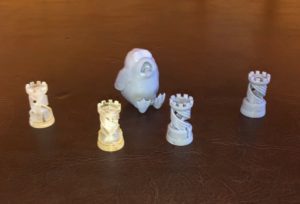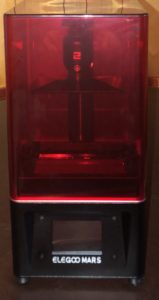Adding Additive Manufacturing to Our Machine Shop
Have you ever imagined something that you wished you could build and test right away? Are you seeking an quick, inexpensive way to manufacture small run parts?
Recently we decided to step into the world of additive manufacturing by adding a 3D printer to our job shop. We’re still in the early stages of learning this new tool, but we’re very excited about what it can do to improve service at ABF. Read on to discover a few of the many of the reasons we’re bringing this modern yet basic tool into a traditional machine shop.
First, it wasn’t difficult for our staff to jump right in and start building. Many of the steps associated with CNC machining and 3D printing are similar. In both cases, a solid model and computer programming knowledge is a must. But instead of the CAM software that create the toolpaths required by model, printers use built-in “slicing” algorithms to write the code needed to build.
By their nature, printers significantly reduce waste and use less energy. In conventional machining, material is removed and discarded to create a product, while with 3D printing, material is added as the product is built. This is why 3D printing is also called additive manufacturing.
For those concerned that 3D printing creates only inferior products, modern industrial 3D printers can utilize high quality materials to produce durable, reliable products. While there are benefits to working with plastic, a high-quality 3D printer is also capable of utilizing aluminum, stainless steel, and titanium.
3D printing can stimulate the creative process, inexpensively providing a way to work through several iterations of a concept while reducing time between prototypes. The quick turn around allows you to arrive at a functional product faster than traditional forms of prototyping.
Both CNC machining and 3D printing can help shop owners keep overhead costs down by allowing us to make our own parts and repair our own machines. However, CNC machines are needed to fulfill larger and more lucrative customer orders, meaning it can be difficult and costly to find time to create individual parts for shop use.
3D printers are more efficient than CNC machines for manufacturing small quantities. Small businesses and inventors are always creating, solving problems or improving on existing products. While some small companies have the capital to afford their product’s initial creation, it doesn’t always mean that a job shop is willing to take on a small production run.
3D printers are a versatile and useful tool to add to a machine shop of any size, and we’re excited to branch into using this machinery at ABF. To find out if 3D printing might be right for your next project, email us for a quote at sales@abfeng.com.






